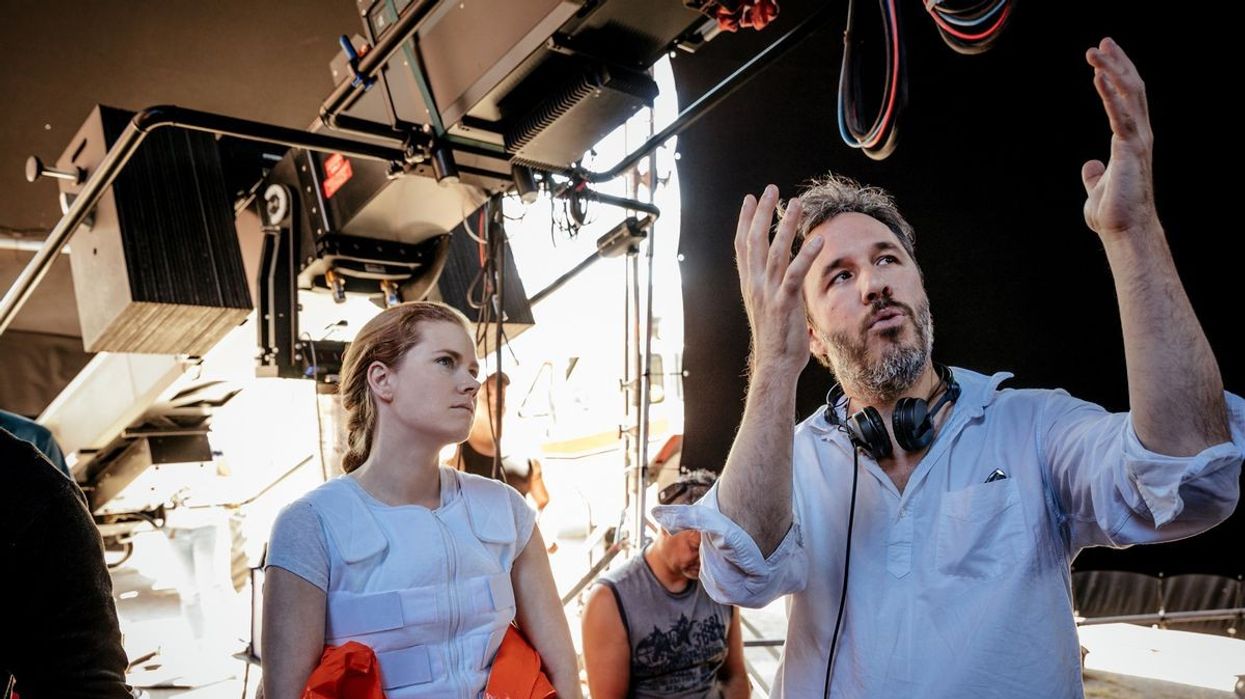4 Things Denis Villeneuve Can Teach You About Directing
"Arrival" is a visual and storytelling masterpiece about how humanity finds itself through an encounter with aliens. So how did Villeneuve do it?

Directing science fiction can be one of the hardest genres to tackle, because it seems like every visual cue and storyline has been taken. How can you set your voice apart from those who came before you without tearing the genre apart into unrecognizable pieces?
Well, just take a look at how Denis Villeneuve managed to do just that for Arrival.
When the director was handed the screenplay for Arrival, he knew he had something special. Eric Heisserer's words, based on the novella by Ted Chiang, set an incredibly human story that Villeneuve knew he had to honor. But he had to scale his vision and make concessions as things got hard.
Now find out how he still wound up with a masterpiece.
Check out this new video from The Director's Cut and let's talk after!
4 Things Denis Villeneuve Can Teach You About Directing
I went through the video and took the four tips that I think we should talk more about. So let's dig into them a little more and see what we can find.
1. Respect what drew you to the script
Villeneuve talks a lot about how he read the screenplay and was completely enamored. I loved his line about being a screenwriter's best friend because he finds a mutual love of their words and themes. This is balanced by being their worst enemy, as he has to also find his cuts, scene order, and reshape things in his vision.
The collaboration between director and writer is paramount here. I love that he stays in communication but finds his spin. Thanks to things like the auteur theory, people tend to forget that the director's job is to unify voices, not shout above everyone else's voice.
Respect the effort put forth before you, and let that effort drive you now.
2. Let your fun become your nightmares and make it fun again
Making movies is hard. It's oftentimes an insane nightmare of problems and stress. But at the end of the day, you're still making movies. There's something inherently fun there. No matter how bad things get. This endless cycle of insanity is what making Hollywood movies is all about.
You have to solve budget problems, deal with actors, tweak scenes, manage a schedule, it's enough to drive anyone nuts.
But if you remember the fun, if you remember why you got into this, every production seems plausible, from the short film you and your friends are trying to finish on the weekend to your first feature.
3. It's science fiction; don't explain everything
The best part about science fiction movies is that they show us a world that "could be." But one thing we need to get away from as writers and directors is overexplaining what things are and why they are that way. When it came time to show the spaceships and aliens in Arrival, Villeneuve knew that they had to be not of this world. He didn't want to waste time trying to tell us what they were or how they worked. The important part was our reaction to them.
As a storyteller, especially a director, you have to thrive in what you don't define.
For Villeneuve, that meant fully deciding what Arrival was about, letting the story about humanity pop, and not worrying too much about alien tech.
Still, attention to detail mattered: the ships had to look otherworldly, the tech the military used had to feel authentic and real. However, we don't spend time learning how machines or processes work if it isn't crucial to the story.
4. Find a DP that amazes you and collaborates
Trust is one of the most important things a director can share with their crew. One of my main takeaways of the video is how much trust Villeneuve has for Bradford Young, one of the best cinematographers working today. He thrives in low light, and for this movie, they wanted to shoot it dirty. That mean gloomy skies and days.
Villeneuve was busy trying to do practical effects and working with actors, so he had to put a ton of faith in Young to work independently and to deliver the look and feel they planned out.
Obviously, this truly paid off.
The movie looks unique and defies tropes. It's hopeful, realistic, and has a distinct style.
As a director, you want to do it all at all times, but it's so important to hire and work with a DP who not only gets you but also knows how to take your ideas and make them tangible realities.
What's next? 4 Directing Tips From the Coen Bros.
Learn how the Coen brothers put their minds together for No Country for Old Men and were able to adapt the novel into something distinctly spooky and moving,
Source: The Director's Cut















